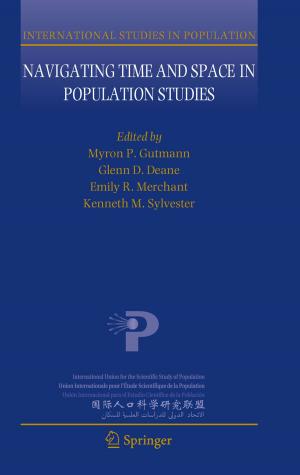Strategies for Achieving Food Security in Central Asia
Nonfiction, Science & Nature, Technology, Quality Control, Food Industry & Science| Author: | ISBN: | 9789400725027 | |
| Publisher: | Springer Netherlands | Publication: | November 15, 2011 |
| Imprint: | Springer | Language: | English |
| Author: | |
| ISBN: | 9789400725027 |
| Publisher: | Springer Netherlands |
| Publication: | November 15, 2011 |
| Imprint: | Springer |
| Language: | English |
Food Security is a primary concern for all countries. However the vulnerabilities which need addressing are dictated by the individual country according to the food control systems in place, the nature of the food industry and the culture of the country. This book summarises the presentations of a NATO Advanced Training Course addressing the issue of food security in Central Asia. The book is divided into two sections. The first provides an overview of the existing aspects of food security in participating Central Asian countries. The emphasis here is on food safety, control and access and includes background information on the relevant food industries. Participating countries include the Kyrgyz Republic, Kazakhstan, Uzbekistan and Tajikistan. The second section explores particular aspects of food security in participating NATO countries. These provide some insight into the value, strengths and weaknesses of common food security systems. Chapters cover HACCP, ISO/IEC 17025 standards and associated pre-requisite systems, allergies and food intolerances, risk perception and communication, training, and ethics. A chapter on food defence in the USA is also included. This book is suitable for anyone with an interest in food control systems and food security.
Food Security is a primary concern for all countries. However the vulnerabilities which need addressing are dictated by the individual country according to the food control systems in place, the nature of the food industry and the culture of the country. This book summarises the presentations of a NATO Advanced Training Course addressing the issue of food security in Central Asia. The book is divided into two sections. The first provides an overview of the existing aspects of food security in participating Central Asian countries. The emphasis here is on food safety, control and access and includes background information on the relevant food industries. Participating countries include the Kyrgyz Republic, Kazakhstan, Uzbekistan and Tajikistan. The second section explores particular aspects of food security in participating NATO countries. These provide some insight into the value, strengths and weaknesses of common food security systems. Chapters cover HACCP, ISO/IEC 17025 standards and associated pre-requisite systems, allergies and food intolerances, risk perception and communication, training, and ethics. A chapter on food defence in the USA is also included. This book is suitable for anyone with an interest in food control systems and food security.















